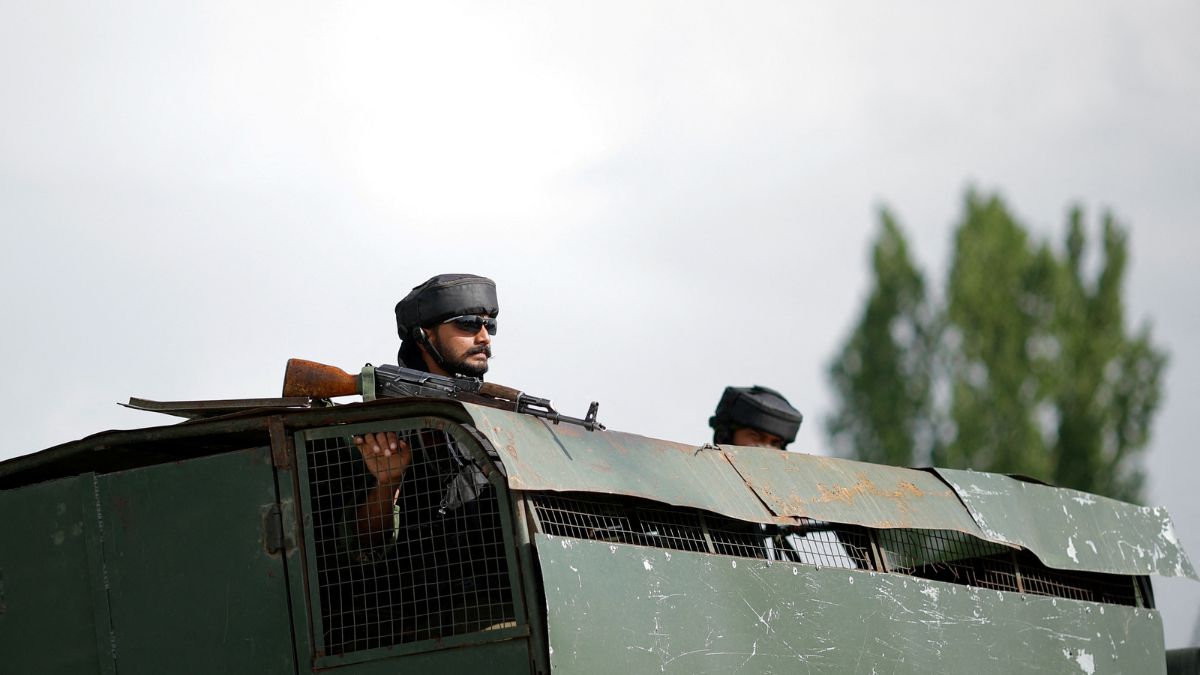As tensions between India and Pakistan heighten, there are fears that the skirmishes between the two rival neighbours could result in an all-out war. Last night, New Delhi thwarted Islamabad’s bid to target the western border using multiple missiles and drones.
This came after Indian strikes hit nine terror sites in Pakistan and Pakistan-occupied Kashmir (PoK) on early Wednesday (May 7). Dubbed Operation Sindoor, the mission was India’s response to the April 22 Pahalgam terror attack that killed 26 people, mostly tourists. Pakistan has resorted to cross-border firing for two weeks now.
The latest escalation between India and Pakistan has further stoked concerns about a looming war. But how is a war formally declared by New Delhi?
We will explain.
What does India’s Constitution say?
War is defined as an armed conflict between two or more States. It can be fought for economic, political, religious or ideological reasons.
The Indian Constitution does not have a specific provision to declare war. In fact, war is mentioned as something that has arisen and not something that the State may commence, noted The Leaflet.
Article 352 of the Constitution, which pertains to Emergency, is invoked at the time of war.
What’s in Article 352?
Article 352 (1) states that if President “is satisfied that a grave emergency exists whereby the security of India or of any part of the territory thereof is threatened, whether by war or external aggression or armed rebellion,” she can make a make a declaration, through Proclamation, “to that effect in respect of the whole of India or of such part of the territory thereof as may be specified in the Proclamation.”
The President can issue the Proclamation of Emergency on the advice of the Union Cabinet led by the Prime Minister. She can declare an Emergency only when such a recommendation is made in writing.
In effect, whether to go to war or not is decided by the Union Cabinet.
The Parliament also plays a key role during Emergency. The proclamation has to be “laid before” the Lok Sabha and the Rajya Sabha. It will not be valid after a month unless approved by both houses of Parliament. A resolution on such a proclamation has to be passed by Parliament “by a majority of the total membership of that House and by a majority of not less than two-thirds of the members of that House present and voting.”
The emergency remains in force for six months and can be further extended for another six months through similar Parliamentary resolutions.
The President has the right to revoke the Proclamation of Emergency through another proclamation. Moreover, she is bound to revoke the emergency if the Lok Sabha passes a resolution against its continuation.
ALSO READ: India activates Territorial Army: What's this part-time force that Dhoni, Anurag Thakur are part of?
Has India ever declared war?
No.
While India has fought several wars in the past, including with Pakistan, there has not been an official declaration of war.
India fought its first war with Pakistan in 1947-48 when Kashmir was invaded by tribal militias and Pakistani forces.
The Indian and Pakistani forces battled again in 1965, with the conflict ending with a UN-brokered ceasefire and the Tashkent Declaration.
In 1971, India fought a war with Pakistan that resulted in the formation of a new country, Bangladesh. It was triggered by the political and humanitarian crisis in the then East Pakistan. India was roped into the conflict after Pakistan targeted its airfields.
The 1999 Kargil war began with the Pakistani soldiers and terrorists infiltrating into Jammu and Kashmir’s Kargil region. No formal declaration of war was made at the time.
With inputs from agencies


)

)
)
)
)
)
)
)
)



